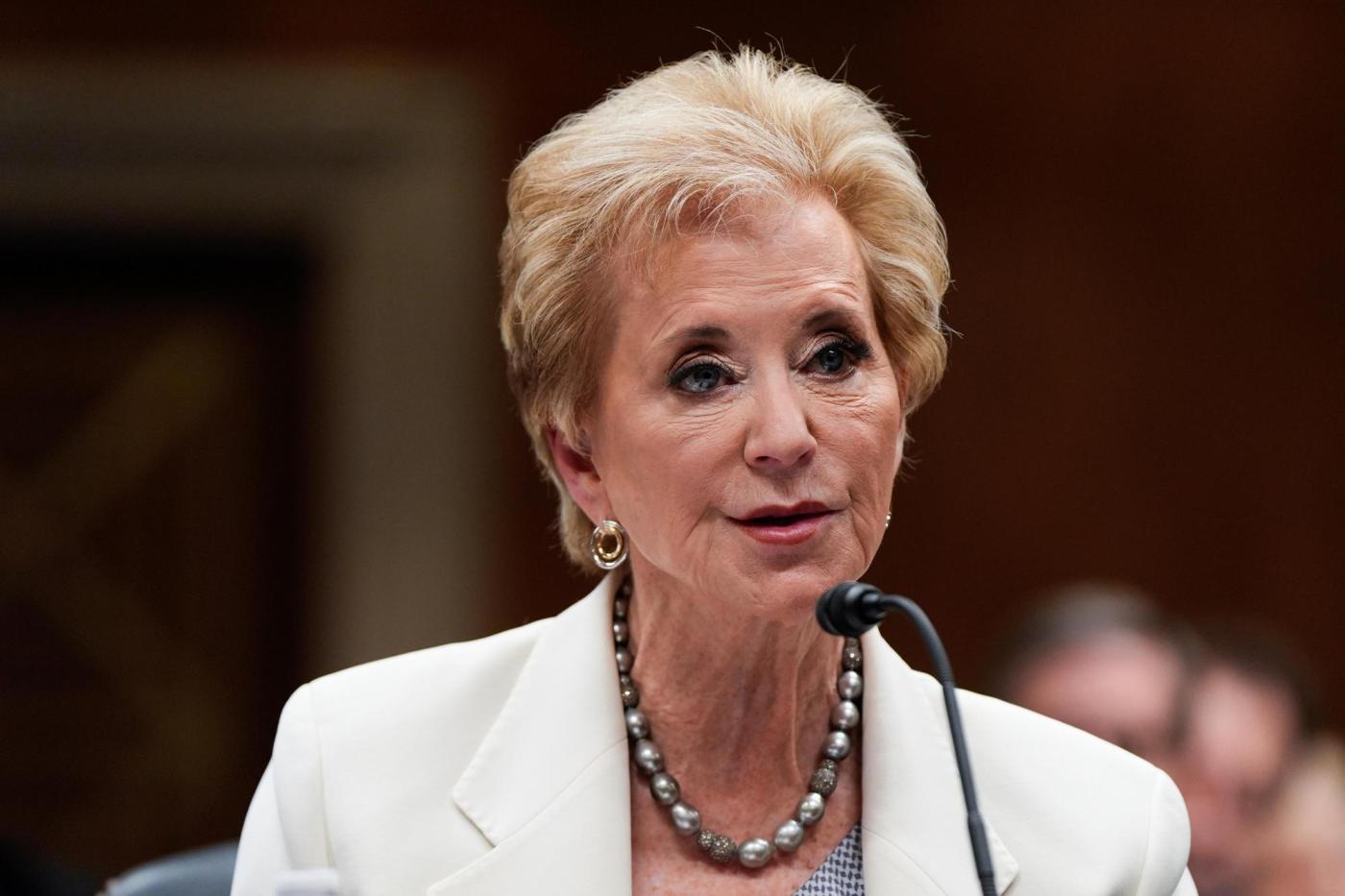UPDATE: U.S. Secretary of Education Linda McMahon has sparked a heated debate following her claim that the recent 43-day government shutdown proves the Department of Education is unnecessary. In a controversial opinion piece, McMahon asserted that the shutdown demonstrated the department’s lack of impact on students, stating, “Every family saw that schools continued to operate without disruption.”
The Trump administration is responding swiftly by planning to transfer key responsibilities of the Department of Education to other federal agencies, moving closer to a potential elimination of the department. Just days after McMahon’s remarks, she announced six agreements to delegate education responsibilities to agencies including the State Department, Department of the Interior, and Department of Labor. This includes managing Title I funding for low-income schools and college access programs.
McMahon emphasized that the shutdown should not have disrupted federal support for education, arguing instead that it should be decentralized to improve efficiency. However, experts warn that this transition risks significant disruption. Professor Patrick McGuinn from Drew University highlighted that the Department of Education was established in 1979 to address inefficiencies caused by decentralization.
During the shutdown, the education department furloughed nearly 87% of its 2,447 employees, causing severe operational setbacks. Enforcement of civil rights regulations was halted, creating a backlog of over 25,000 cases. Low-income education programs, such as Head Start, faced chaos, risking closures and leaving thousands of children without services.
Despite McMahon’s assertions, education experts stress that the federal government plays a crucial role in ensuring equitable funding and support across states, especially for disadvantaged communities. Economist Nora Gordon argues that the federal role is essential for research and data collection, which states alone cannot effectively manage.
As the administration moves forward with these plans, the implications for students and families could be significant, leading to increased inequity in educational resources. McGuinn warns that this shift could result in delayed funding and a loss of critical oversight, worsening conditions for those who rely on federal support.
Families and education advocates are closely monitoring these developments, as the future of federal education support hangs in the balance. The situation remains fluid, and as the administration implements these changes, the impact on students’ education and equity across the nation will be crucial to watch.
Stay tuned for further updates as this story develops.






































































